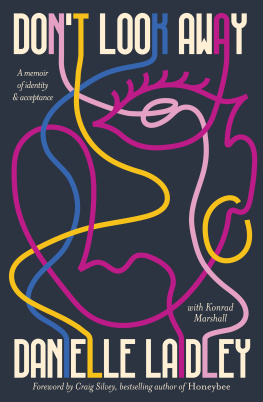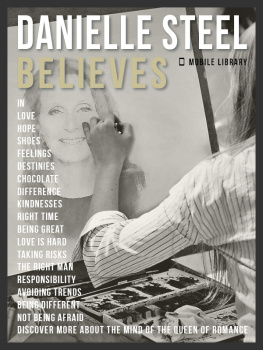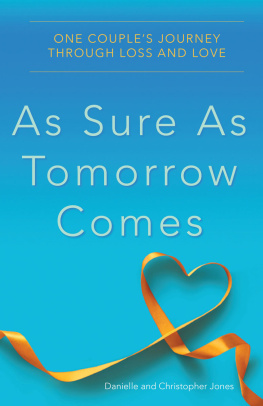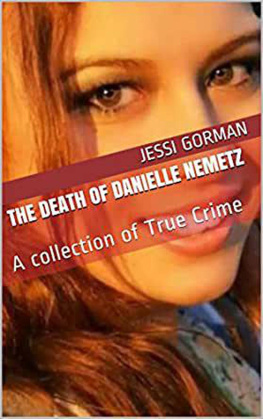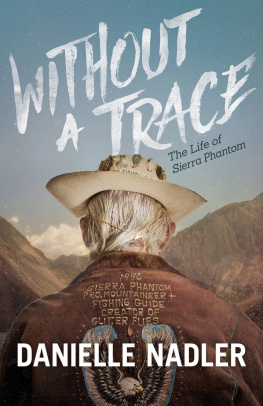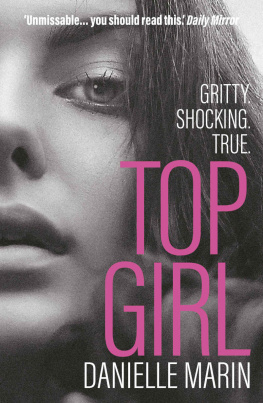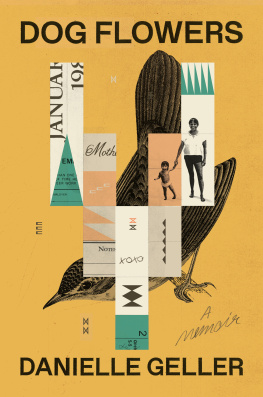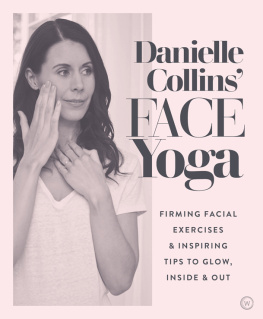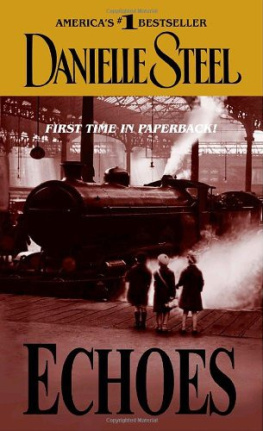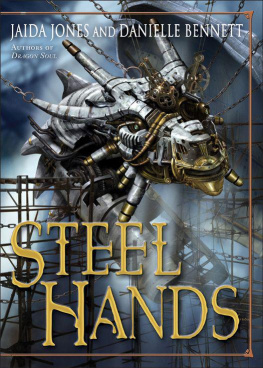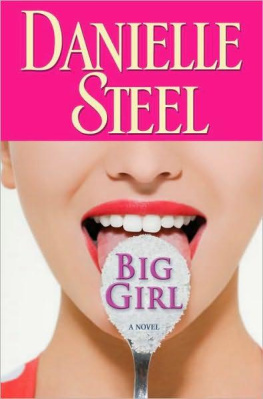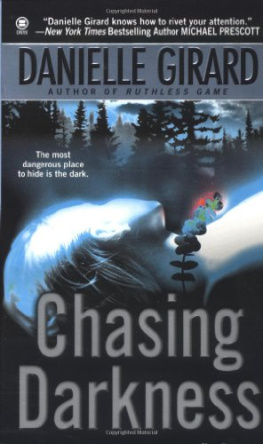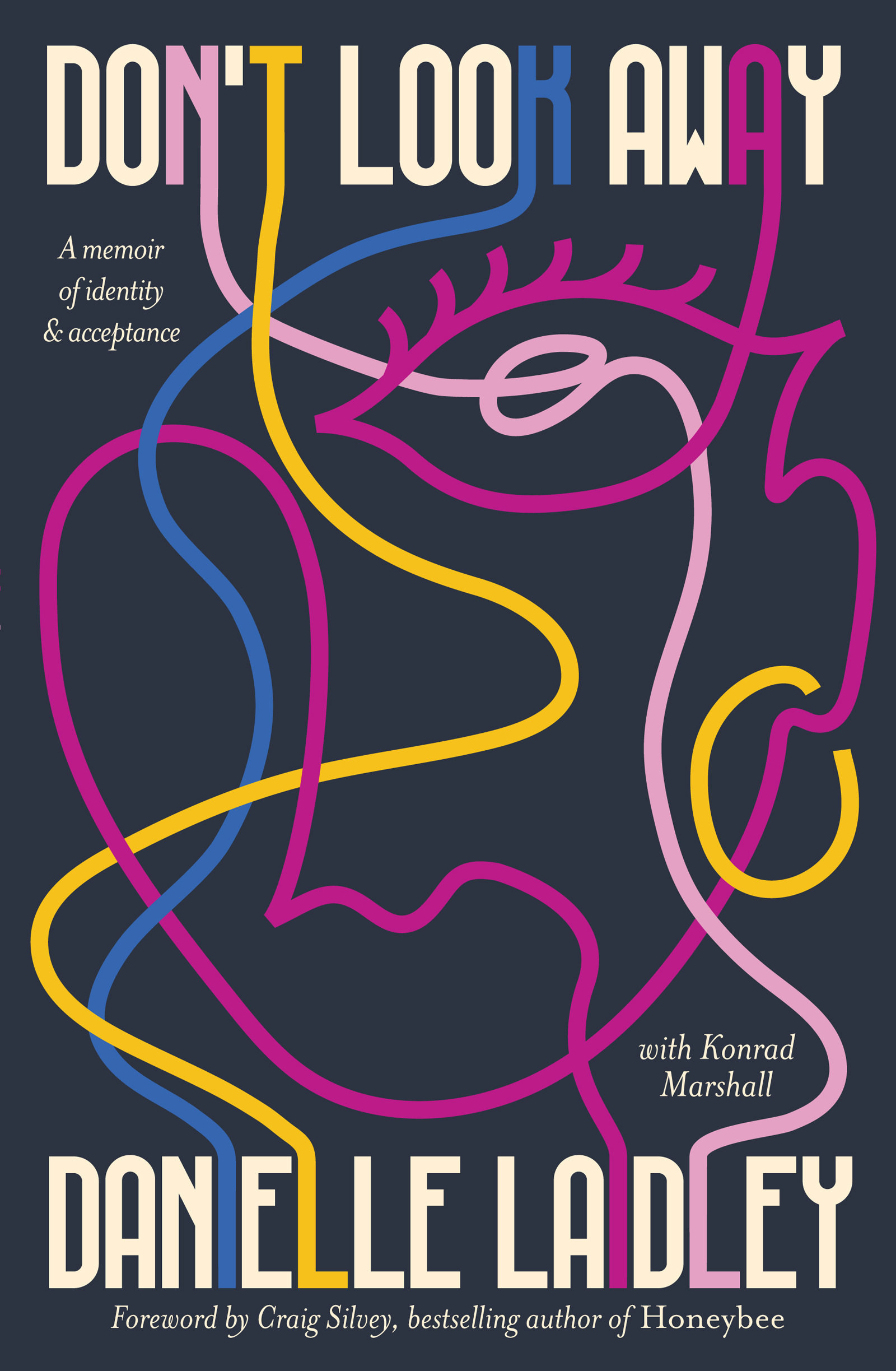Contents
Guide
For my children
This story is for you, in the hope that one day we will walk together again, side by side.
I love you always have, always will.
This book deals with suicide and drug abuse. If you, or a person you know, is in need of crisis or suicide prevention support, call Lifeline on 13 11 14, or visit lifeline.org.au/gethelp
contents
I have an enduring memory of Danielle Laidley.
Midway through the 2006 AFL season, which had been a disappointing one for the North Melbourne Football Club, a verbal confrontation took place in the stands between Danielle, who was then head coach, and a furious spectator.
A few hours later, that same spectator took their own life.
At the time, beyond reflecting on the tragedy, I recall being dismayed by the willingness of the press to connect the two events, as though Danielles outburst had been in any way causative.
Despite being absolved of blame by the spectators family and the broader community, by all appearances it took an emotional toll on Danielle. She looked haunted addressing the media the following day. I was moved by the sincerity of her response, and the sorrow she expressed.
But what I remember most is what she had said to the spectator. It seemed at odds with the hostility of the exchange in the stands.
It was an invitation.
Come down to the rooms, she had said. Come and see how were all hurting.
To my interpretation, Danielle had extended the offer so the spectator could see that he wasnt alone. That they were all human, all fighting towards a common purpose, all sharing the same frustrations, all capable of fragility.
It was a respectful and compassionate gesture, and it put everyone on equal footing. In acknowledging the spectators pain, Danielle was saying that she understood it, because she felt it too.
After a family member of mine intervened in the attempted suicide of a young trans person, I was inspired to better educate myself as to the challenges and pressures faced by trans and gender-diverse people in Australia. I was alarmed by the high incidences of depression and anxiety and self-harm, deeply concerned by the disproportionate exposure to violence, and heartbroken by the prevalent rates of attempted suicide.
It struck me as a crisis. And it still does.
I began writing a novel about a young trans character called Honeybee, who steps onto a quiet overpass in the middle of the night and looks down at a fatal abyss. Its a bleak beginning to a book, but I was seeking to answer an optimistic question: how might this person climb back over the rail and make their way towards a safer, more hopeful path?
Through my research and consultation with members of the community, I came to understand how the presence of support, love, acceptance, safety and allyship immeasurably improved outcomes for trans and gender-diverse people.
I wanted cisgender readers to be inspired by this. I hoped they might reflect on the extent to which our cisnormative social order has marginalised and undermined the progress of trans people, and how we all have a responsibility to correct that injustice.
But my principal ambition in writing Honeybee was to give trans and gender-diverse readers the opportunity to feel seen, and respected, and galvanised, and truly represented.
Im proud to say that far beyond any prize or plaudit, the most profound reward of my writing life has been the opportunity to hear responses from trans and gender-diverse readers to whom Honeybee has given comfort and courage.
One of those very generous readers was Danielle Laidley, and Ill forever be grateful for her friendship.
Like many Australians, I have enormous admiration for Danielle Laidley. Throughout her many careers we have seen her leadership, her strength, her ferocious courage, her conviction, her generosity, her passion, her honesty.
But there have been aspects of her life that we havent seen. Much of what has defined Danielle has been deeply private. Not just concealed from public view, but obscured from her own understanding too.
For previous generations of trans people, finding a language and a conceptual framework to process their feelings of dysphoria was often impossible. Outside queer, academic and progressive communities, meaningful discussions around gender identity did not exist. They certainly couldnt be heard in the back blocks of Balga or in our mainstream sporting culture.
And for many, contending with these issues in solitude often amplified the confusion and widened the disconnection and deepened the internalised shame. This is why the clarity of a clinical diagnosis, the euphoria of self-actualisation, and the introduction of acceptance and support can provide such relief.
Its also why books like this one are so vital and valuable.
Much of Danielles memoir is about recontextualising her past, but its also a reclamation of her narrative. After her truth as a trans woman was cruelly and disgracefully publicized without her consent, Danielle was again unable to control the perception of her own identity.
Until now.
These are her words. They are powerful, they are inspiring and, just like in 2006, they are an invitation.
Once again, Danielle is asking us to come and see. To come and see how she has hurt. To come and see how she has triumphed. To come and see how she has endured heartbreak and back-break, how she has self-medicated and how she has healed, how she has lost herself and found herself.
Shes inviting trans and gender-diverse readers to come and see that they are not alone, that they need not feel afraid or ashamed. That they are loved. That they matter. That there is hope.
Shes inviting cisgender readers to come and see a proud trans woman navigating the world with pride and purpose. To come and see the discrimination she has experienced, and how she has faced these obstacles with dignity and humility. To come and see how her story is emboldening and saving lives.
Shes inviting us all to come and see things as shes seen them. To feel things as shes felt them. To live them as shes lived them raw and confronting as it may often be.
Come and see. And dont look away.
I live in Kilmurray Way, a hook-shaped street in the suburb of Balga, in the hardscrabble, sunburnt flatlands north of Perth. Im six years old, and I dont know it yet but this is the first place I will remember in life.
Our block is huge, or seems that way to me. In the corner of the front yard is one of those massive pampas grass plants a big ugly circular clump of long serrated leaves bowing outwards like sabres, with a few feathery flower things sprouting straight up out of the centre. Theres a weeping willow, too, in the middle of the lawn. I like lying on the thick grass under its ropey yellow-green branches as they dangle and sway. The driveway is a thin layer of tar on the ground, and it gets sticky in the summer until it slowly melts away to the orange dirt and rock beneath. The back yard is bare, a plain expanse with a squat concrete shed and a hulking gum tree in one corner. I have to tilt my body back 45 degrees to see the eucalyptus canopy.
The brick house itself is nothing to look at. A lounge at the front feeding three bedrooms on one side and a kitchen on the other; a dunny out the back. Im afraid to go for a wee in the middle of the night scared a redback will have crawled in there and under the toilet seat from the pile of logs sitting next to the lav the logs we feed into the wood heater, which gives us our hot water.
Next page
